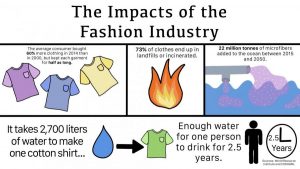Numerous resources exist on sustainable living, methods and tips on reducing waste and shrinking your footprint on the earth, but not enough focus is put on incentivizing people to actually engage in these methods. This disconnect poses the greatest issue to the adoption of clean energy, eco-friendly technology, and protection of the environment. To create a large lifestyle change in the general public is a tall task, thus the onus must be placed on every individual as a moral duty even when no one else is watching. The ethics of sustainable living should no longer be seen as a personal choice certain individuals make, but a moral obligation for all. In the same way we have the duty to not pollute common discourse with slurs or epithets, we maintain a similar responsibility to not pollute or waste the physical world around us. As with all duty ethics, where to draw the line of a personal duty is the fundamental issue; en masse burning of fossil fuels clearly is destructive and thus not morally permissible when other energy alternatives exist, but should the same energy be applied to a person to adopt low-flow faucets and take shorter showers? This issue requires at least an article unto itself, but the purpose of this piece is simply to convince the reader of their duty to the environment.
In David Wallace-Well’s piece “The Uninhabitable Earth,” he dissects the numerous ways climate change will, to be frank, screw us all in tremendous fashion. He directly engages eight consequences from climate change which, as the name of the piece suggests, make the earth uninhabitable. In addition to well-known effects such as sea-level rise, he points out the ocean will also become more poisonous as acid levels grow, “fry fish populations directly,” killing sea life which cannot adapt and causing illness and death for the coastal populations, which constitutes nearly half of the global population. Peter Singer’s One World Now introduces the question of which nations hold the greatest responsibility to amend the atmosphere. This national perspective, and similar ones about which companies are at fault, distracts from the greater issue that it is up to every individual to enact change in their life. Countries (democracies at the very least) and companies follow the actions of their civilians and customers. Clearly, there is little an average American citizen can do about the burning of fossil fuels in China, and thus the discussion of how to ensure the actions of another country do not doom us all is perfectly worthwhile. What we have more direct control over however is what occurs in our lives. Product choice and how a person lives their life is decided entirely or nearly entirely by that person.

From a utilitarian perspective, living an unsustainable lifestyle deprives future generations, if not yourself, of future happiness for short-term enjoyment. John Stuart Mill recognized this when formalizing his perspective on utilitarianism–the existence of higher and lower pleasures recognizes some forms of pleasure are more valuable than others. In the case of sustainability, this would be akin to short term pleasure one gets when finding a cheap purchase made through immoral and unsustainable means, juxtaposed with the long term satisfaction of a more durable product, and one that leaves the user feeling as though they have contributed to very continuation of human society. Blue Zones are areas of the world with a much higher life expectancy than average, and of the common traits among the five recognized Blue Zones is some life purpose. This suggests humans long to feel as if they are part of something greater, something which gives them motivation beyond themselves to get out of bed every morning, and what greater sense of purpose exists than the continuation of mankind?

For the first few hundred thousand years of human existence, the primary struggle was scarcity of resources, and in under a hundred years that has flipped to now become the struggle of surplus. Little thought was given to the ethics surrounding waste and environmental degradation as those were limited in scale by technology, and thus it has not been ingrained in every person with the same vigor as other ethical issues, or even as a moral issue at all. We are quickly realizing the negative ramifications of this lackadaisical attitude and without a sharp mental adjustment of most of the world, this will likely be the only time we are able to make such a mistake.
Wallace-Wells, David. “The Uninhabitable Earth.” (July 10, 2017). New York Magazine. https://nymag.com/intelligencer/2017/07/climate-change-earth-too-hot-for-humans.html
Singer, Peter. One World: The Ethics of Globalization. New Haven: Yale University Press, 2002. Print.
Mill, John Stuart. Utilitarianism. London, Parker, son, and Bourn, 1863. Web.. Retrieved from the Library of Congress, <lccn.loc.gov/11015966>.